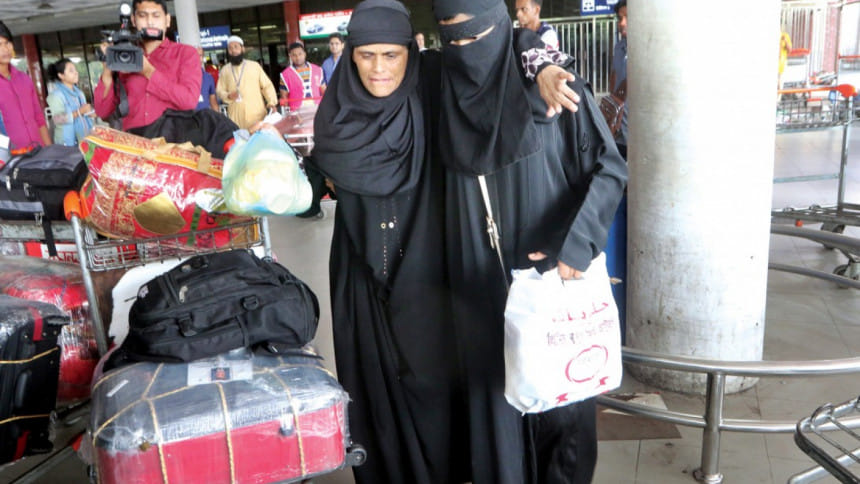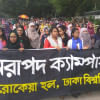Minister criticised for failure to stop female expats’ torture in KSA

Expatriate Welfare and Overseas Employment Minister Imran Ahmed was criticised by three opposition lawmakers in parliament today for the ministry’s failure to stop torture and sexual harassment of Bangladeshi female workers in Saudi Arabia.
The main opposition Jatiya Party MPs -- Kazi Feroz Rashid, Mujibul Haque Chunnu -- and Gonoforum MP Sultan Mohammad Munsur raised the issue during a question-answer session of parliament this evening.
In his supplementary question, Kazi Feroz Rashid said what the expatriate welfare minister and the ministry is doing when Bangladeshi female workers are subjected to sexual harassment in Saudi Arabia.
“Dead body of around 600 to 700 female workers have returned the country from Saudi Arabia in the last few years. In every case, the autopsy report claimed reasons for their death was natural. The autopsy was carried out by the Saudi authorities while no representative from the Bangladesh embassy or from the expatriate welfare ministry remained present during the autopsy,” Kazi Feroz said.
The JP MP said the ministry or the Bangladesh embassy did not play any role against the respective recruiting agencies for sending Bangladeshi female workers to Saudi Arabia without ensuring their safety and a regular salary.
“We cannot do such business (earn foreign currency) through sending our female workers and at the cost of their torture and sexual harassment,” he also said.
“Why we need to send the female workers to Saudi Arabia? Stop this. Are we so poor that we will have to send female workers to Saudi Arabia for the earning of the country? Have we become a country which is a bottomless basket? We don’t need money at the cost of selling our mothers and sisters.”
The JP MP also said neither the minister nor his ministry didn’t take any actions to stop this and they are also not aware of this.
Sultan Mohammad said, “Bangladesh will get an identity as a slavery country in the international world if we do not stop sending female workers to Saudi Arabia.”
Mujibul Haque Chunnu said female workers are returning home from Saudi Arabia on a regular basis due to torture and sexual harassment.
He wanted to know what actions the minister has taken to stop this.
In reply to Chunnu, Expatriate Welfare and Overseas Employment Minister Imran Ahmed said the government is more worried over the issue.
“Recently, I invited the Saudi Arabian Charge d' Affaires at the ministry office and raised this issue while meeting with him,” Imran Ahmed said, adding, the Bangladesh envoy in Saudi Arab has been directed to raise the issue to the foreign ministry of that country.
“If our female workers become unable to work in Saudi Arabia, we will consider whether we should stop sending female workers to Saudi Arabia,” the minister told the House responding to a query in this regard.
“We have taken steps to send the female manpower after giving them training on various types of protective measures. If it seems that it is completely impossible then we will think not to send any female manpower there,” Imran Ahmed said.
The minister said that sending of manpower completely depends on the demand of the respective country.
“Our efforts will be to ensure the dignified job for the female workers, if we see that it is not possible, then we will think to stop sending the female workers,” he said.
The minister also said the joint technical group of Bangladesh and Saudi Arabia will sit in a meeting in Saudi Arabia on November 26 where these issues will be disused.
The minister also said no female workers will be sent to Saudi Arabia without training of minimum one month.
“I hope this problem will be resolved to a large extent,” he added.
The minister said we have to send workers to a country as per the country’s demand.
In reply to Kazi Feroz, the minister informed the House that in the last couple of months, the ministry has suspended licenses of 160 recruiting agencies, cancelled the license of three recruiting agencies and fined Tk 3 crore to a number of recruiting agencies for their involvement in various irregularities in sending female workers in Saudi Arabia.

 For all latest news, follow The Daily Star's Google News channel.
For all latest news, follow The Daily Star's Google News channel. 








Comments